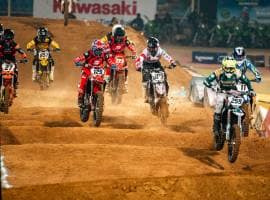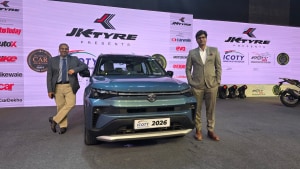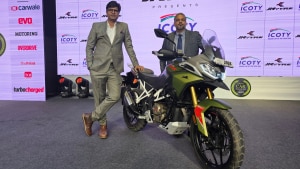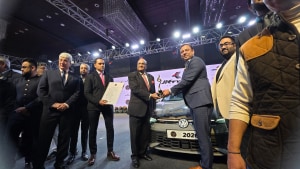Of big open single seaters...
It happened one afternoon when I was wandering down the paddock at the Red Bull Ring in Spielberg, Austria. I'd been treated that day to an array of swift single seaters, some hatchbacks straining to go as fast as their engines would let them, and even a fleet of GT3-spec cars barreling all at once through Rindt Corner. But none of those machines could have produced that deafening roar that I found myself listening to at that point.
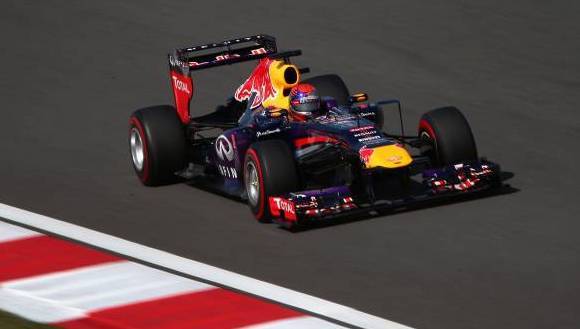 Big Open Single Seaters or BOSS GP is a series where you can actually race cars like this Red Bull RB9 that Vettel raced back in 2013, provided you can get your hands on it!
Big Open Single Seaters or BOSS GP is a series where you can actually race cars like this Red Bull RB9 that Vettel raced back in 2013, provided you can get your hands on it!
From where I was standing, I couldn't see cars going past the Armco barriers, which meant they were very close to the ground. Single seaters, then. But to produce the sound they were making, they'd have to be F1 cars from the days of yore. Imagine my surprise when I found out that that's exactly what they were. Cars competing in a series called BOSS GP, where BOSS stood for Big Open Single Seaters. A championship where old F1 cars competed against Champ Cars, and IndyCars, with a few GP2 machines, World Series by Renault cars, and Superleague Formula cars thrown in for good measure.
A part of me dismissed this as a series for people just rich and reckless enough to buy and drive these mad machines. Then I began to think about it a little more and decided that I was in grave danger of becoming far too cynical for my own good. After all, so what if it was a series for the rich and privileged? At least they were racing those cars and not letting them sit pretty in a museum, or gather dust and rust. There were two realisations that I had at that point. The first was that contrary to popular belief, cynicism isn't the opposite of naivety. The second was that cynicism, as much in motorsport as in life itself, kills.
A week before being startled that a Benetton B192 from the early '90s was competing against a Williams FW33 from 2011, I'd been readying myself for a weekend at the World Rallycross Championship at Hockenheim. An old, and rather wise, motorsport scribe who knew of my plans had scoffed, "Rallycross is for drivers not good enough to make it to rallying, or for drivers who have retired and aren't ready to play golf yet." Something inside me told me that this one time he was wrong. That what he'd said was a broad and rather unfair generalisation. I was happy that the weekend of racing that I got to witness proved me right.
Forget the structure of the World Rallycross Championship in terms of marketing and media reach. Forget the heavy social media push the organisers of the championship are trying to give it. And forget the Monster Energy girls wandering through the paddock. Aside from all the frills, I was more than happy to have confirmed the fact that a good measure of drivers competing in the series - the likes of Petter Solberg, Sebastien Loeb and Johan Kristoffersson - were drivers who had taken various motorsport paths, with varying degrees of success, to end up in a sport that really and truly challenged them and that they were fiercely determined to win. Their collective attitude wasn't that of a driver who believed he couldn't cut it elsewhere. It was that of a driver who wanted to go racing because he loved it, and because he knew he was good at it.
Which brings me to this - I think we often are quick to question the motives of racers. We wonder why they have picked the series they've chosen to compete in. We ask why they aren't competing in a higher category of racing. We start seeing expiry dates printed in invisible ink on their racing helmets. We're quick to come up with ideas of what else they could be doing with their time, how they ought to train the younger generation of racers, and how they ought to give back to the sport instead of actively competing in it themselves. And we're so very dismissive of the circumstances that place them in the situations that they're in. Which is why I have utmost respect for the drivers and riders who hang in there no matter what, blocking out all the noise and negativity, racing because they want to and because it's their choice to make.
Just look at K Rajini. If he had listened to people telling him he was too old for the categories of racing he was competing in, then he wouldn't have become Malaysian Superbike Champion. If he'd let the fact that sponsors weren't biting the bait bother him, then he'd have hung up his helmet and taken to only training other riders in his racing academy. And if he'd merely looked at other people, perhaps not as skilled as him but with money enough to go racing, and begrudged them their opportunities, he'd never get out of bed, much less take 1,000cc motorcycles to triple digit speeds on tight and twisty racetracks.
But Rajini didn't let life defeat him. He raced because he knew he could race and he knew he could win. He crowdfunded his way to the 2016 season of the Malaysian Superbike Championship. And he never once saw someone else's haves as his have nots. Every night when he goes to bed, he goes to bed knowing that he's done all that he could do that day - including running laps around the Chennai track in the sweltering heat wearing full riding leathers to keep himself fit. It's not a bad way to live.
There's another admirable quality that these racers who simply won't give up possess. That is an acceptance of the cards they've been dealt and a willingness to learn to play those cards right. And to keep doggedly at the game, despite a series of bad ones, until that magical championship-winning hand comes by. What keeps them going through all the ups and downs, though, is the hope that it will.

